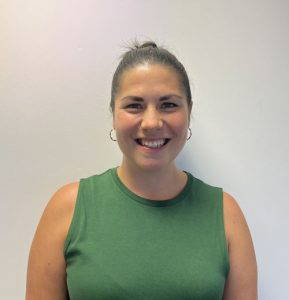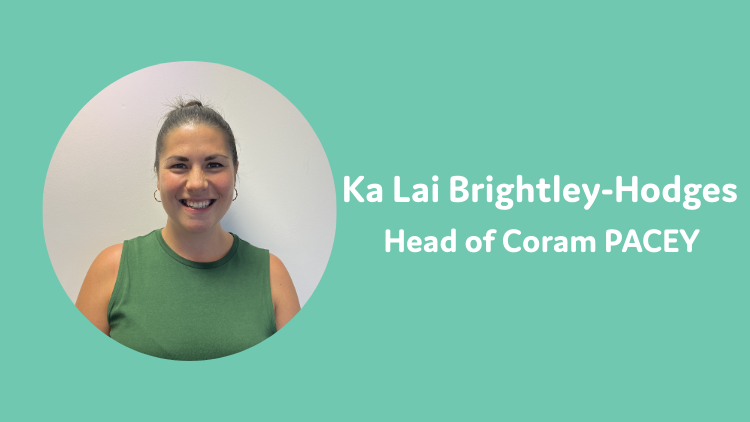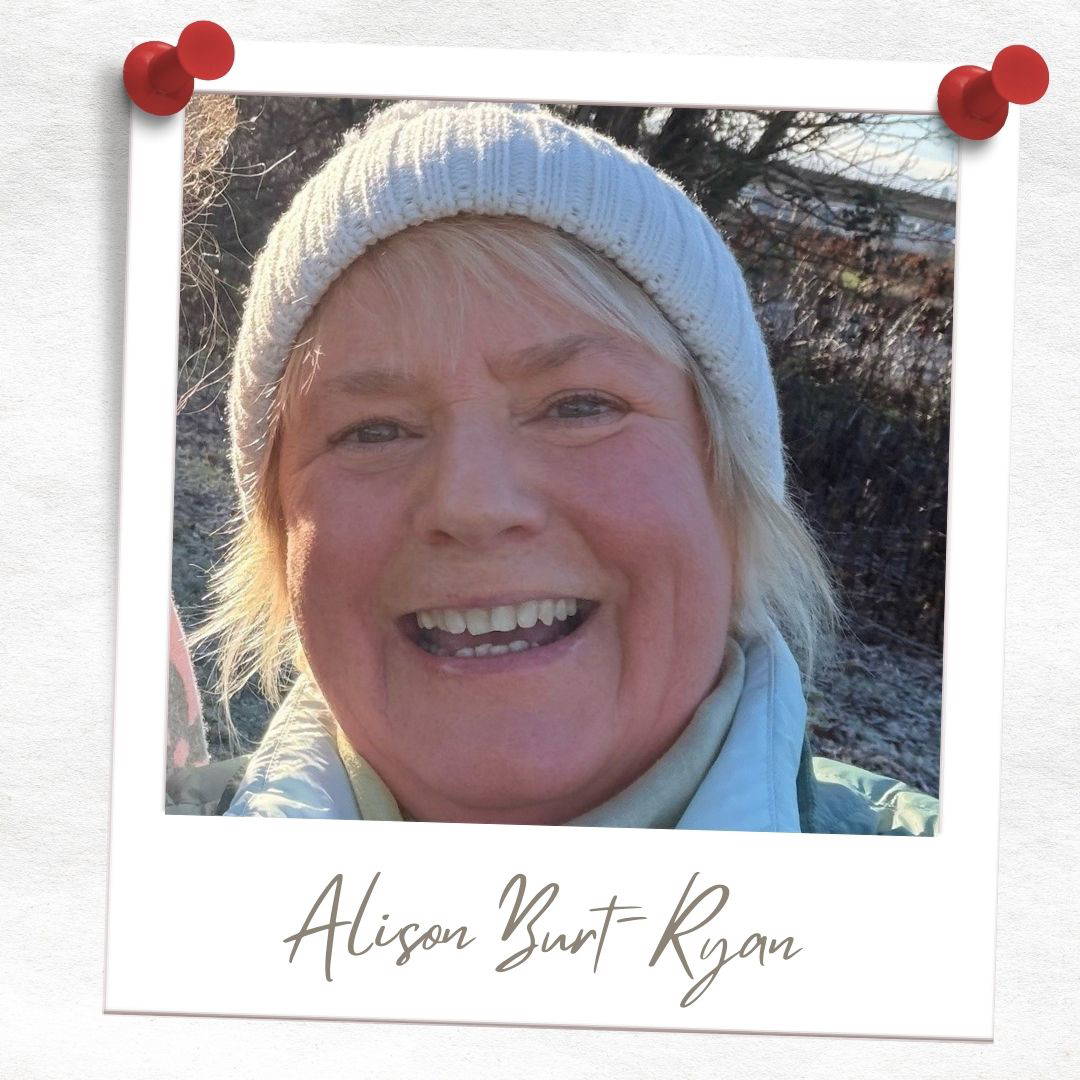In this blog we speak to Ka Lai Brightley Hodges, Head of Coram PACEY to hear about her experiences, insights and thoughts on race, equality and diversity and supporting anti-racist practice.

Tell us about yourself
I live in North London with my partner Dave, my four-year-old son Indy and labrador Sammy. I love living in an urban area that is so close to the countryside (Hertfordshire and Essex) as I enjoy long dog walks every morning before work to have time to think and focus on myself.
I have been part of Coram PACEY for nearly three years having started as Head of Membership and Marketing before becoming the Head of Coram PACEY. I love my job and the team I work with.
I really like design, including interiors and graphic design, I am also an avid reader, I studied English Literature at the Open University which involved reading and analysing lots of classics that I love but now I am also starting to read more modern literature.
Tell us about your own experiences of race
My nan who passed away a few years ago now was from Hong Kong. She met my grandfather who was stationed with the British Army over there. They married and moved to England to start a family. I am one of three sisters who are Chinese and we share a brother who is adopted and is half Black.
When I was a very young child, even though I lived in a rural English village, I only saw being Chinese as something positive- amazing food, money wallets at Chinese New Year and a quirky nan. When I was in infant school no one treated me differently and I didn’t feel different at all.
However, when I moved to primary school, I was bullied specifically for being Chinese. I was called really horrible names and my parents and the head teacher had to get involved. At that point I hated being Chinese and did not care for learning about my heritage and family traditions.
Now that I am older that has changed, I am much more interested in my heritage and learning about things like Chinese cooking and arts. I really want to know more about my family (now in China) and understanding the complexities around Hong Kong and Chinese identities but unfortunately my nan has now passed away and I do not have contact with my mother so I have no-one to ask. Myself, my brother and my sister have continued some traditions including a big Chinese New Year gathering but there’s definitely more traditions I want to celebrate and carry on for my son and nephew.
How do you think your own experiences influence your work with Coram PACEY?
I firmly believe that representation matters and makes a difference. If there had been other Chinese children at my school when I was younger, I wouldn’t have felt as alone when being bullied. If I saw more Chinese people in roles within the non-profit sector when I was first starting my career, I might have been more inspired. At Coram PACEY I try to make sure we represent all cultures, backgrounds and ethnicities as much as possible. I want people to look at our messages and be inspired to start a career in childcare. I want the providers we support to carefully consider the environment of their setting and all the ways they could make a child feel more included and comfortable.
How do you think childminders should plan to promote equality, diversity and inclusive practice in their settings?
Supporting children to celebrate their heritage with friends from different backgrounds is always special, it helps those children feel proud about where they come from and it gives their friends opportunities to be exposed to different cultures and traditions early on.
Reading books that reflect different cultures by authors with differing backgrounds can be a really good way to help children feel included as well as help them understand compassion and empathy for people in their community at an early age.
What would be your top tips for supporting anti-racism practice in a childcare setting?
Anti-racism practice can be a really tough topic to approach especially with young children and will take providers outside their comfort zone. I think the most important thing to do to help yourself is investing in your own personal development, whether that’s paid for training courses or taking the time to read through all the amazing support and literature that’s out there. Only then can you work out where your gaps in knowledge and practice are and understand your own bias before creating your anti-racism strategy including policies, curriculum and culture.
Further information
Yn y blog hwn, siaradwn â Ka Lai Brightley-Hodges, Pennaeth Coram PACEY i glywed am ei phrofiadau, ei mewnwelediadau a'i barn ar hil, cydraddoldeb ac amrywiaeth a chefnogi arfer gwrth-hiliol.
Dywedwch wrthym amdanoch chi'ch hun.
Rwy'n byw yng Ngogledd Llundain gyda fy mhartner Dave, fy mab pedair blwydd oed, Indy a fy labradôr, Sammy. Rydw i wrth fy modd yn byw mewn ardal drefol sydd mor agos at gefn gwlad (Swydd Hertford ac Essex) gan fy mod yn mwynhau teithiau cerdded hir gyda'r ci bob bore cyn gwaith i gael amser i feddwl a chanolbwyntio ar fy hun.
Rydw i wedi bod yn rhan o Coram PACEY am bron i dair blynedd ar ôl dechrau fel Pennaeth Aelodaeth a Marchnata cyn dod yn Bennaeth Coram PACEY. Rydw i wrth fy modd â fy swydd a'r tîm rwy'n gweithio gyda nhw.
Rydw i'n mwynhau dylunio, gan gynnwys cartrefi a dylunio graffeg, rydw i hefyd yn ddarllenydd brwd, fe astudiais Lenyddiaeth Saesneg yn y Brifysgol Agored a oedd yn cynnwys darllen a dadansoddi llawer o lyfrau clasurol rydw i'n dwli arnynt ond yn awr rydw i hefyd yn dechrau darllen mwy o lenyddiaeth fodern.
Dywedwch wrthym am eich profiadau eich hun o hil.
Roedd fy mam-gu, a fu farw ychydig flynyddoedd yn ôl bellach, yn dod o Hong Kong. Fe gyfarfu â fy nhad-cu a oedd wedi'i leoli draw yno gyda Byddin Prydain. Fe wnaeth y ddau briodi a symud i Loegr i ddechrau teulu. Rwy'n un o dair chwaer sy'n Tsieineaidd ac rydym yn rhannu brawd sydd wedi'i fabwysiadu ac sy'n hanner du.
Pan oeddwn yn blentyn ifanc iawn, er fy mod yn byw mewn pentref gwledig yn Lloegr, roedd bod yn Tsieineaidd yn brofiad positif i mi - bwyd anhygoel, waledi arian adeg y Flwyddyn Newydd Tsieineaidd a mam-gu hwyliog. Pan oeddwn i yn yr ysgol feithrin, doedd neb yn fy nhrin i'n wahanol a doeddwn i ddim yn teimlo'n wahanol o gwbl.
Serch hynny, pan symudais i'r ysgol gynradd, cefais fy mwlio'n benodol am fod yn Tsieineaidd. Cefais fy ngalw'n enwau ofnadwy iawn ac roedd yn rhaid i fy rhieni a'r pennaeth gamu mewn. Adeg hynny roeddwn i'n casáu bod yn Tsieineaidd a doeddwn i ddim yn poeni am ddysgu am fy nhreftadaeth a thraddodiadau teuluol.
Nawr fy mod yn hŷn, mae hynny wedi newid ac mae gennyf lawer yn fwy o ddiddordeb yn fy nhreftadaeth a dysgu am bethau fel coginio a chelfyddydau Tsieineaidd. Rydw i wir eisiau gwybod mwy am fy nheulu (bellach yn Tsiena) a deall cymhlethdodau yn ymwneud â hunaniaethau Hong Kong a Tsieineaidd ond yn anffodus mae fy mam-gu bellach wedi ein gadael ni ac nid oes gennyf gyswllt â fy mam felly does gen i neb i'w holi. Rydw i, fy mrawd a fy chwaer wedi parhau â rhai o'r traddodiadau gan gynnwys parti mawr Blwyddyn Newydd Tsieineaidd ond yn sicr mae mwy o draddodiadau yr hoffwn eu dathlu a'u parhau ar gyfer fy mab a fy nai.
Sut wyt ti'n meddwl y bydd dy brofiadau dy hun yn dylanwadu ar dy waith gyda Coram PACEY?
Rydw i wedi meddwl llawer am hynny, fy mhrofiadau sydd wedi fy atal rhag dod yn warchodwr plant am gyhyd. Roeddwn i bob amser yn credu oherwydd lliw fy nghroen na fyddai neb eisiau dod â'u plentyn ataf ac y byddent yn edrych ar liw fy nghroen ac yn meddwl na allaf ofalu am eu plentyn. Roeddwn i bob amser yn meddwl y byddent yn fy nhrin yn wahanol, neu ni fyddent yn ymddiried ynof. Mae hiliaeth wedi effeithio arna i mewn cymaint o wahanol ffyrdd.
Ni fyddaf yn eistedd y plant i lawr ac yn dweud, 'heddiw, rydyn ni'n siarad am hiliaeth,' ond yn ystod sgyrsiau a gweithgareddau byddaf yn siarad am amrywiaeth a chydraddoldeb. Byddaf yn dysgu’r plant nad yw ein golwg, na lliw ein croen, yn ein diffinio. Rydyn ni i gyd yn ddynol, ac nid yw bod â lliw gwahanol yn golygu ein bod ni'n well neu'n llai na neb arall. Mae angen i ni drin ein gilydd â pharch a bod yn garedig â’n gilydd. Mae angen i ni fod yn ddiolchgar am gael ffrindiau o'n cwmpas. Byddaf yn eu dysgu i weithio gyda'i gilydd ac i chwarae gyda'i gilydd ac i beidio â barnu neu eithrio unrhyw un oherwydd lliw eu croen neu eu hacen.
Rydw i am i'r plant deimlo y gallant ddod ataf os yw rhywun wedi eu trin yn annheg neu wedi bod yn hiliol tuag atynt. Dydw i ddim eisiau i unrhyw blentyn fynd trwy'r hyn rydw i wedi bod drwyddo. Gallaf uniaethu â nhw a’u dysgu nad oes rhaid i’w golwg, neu'r ffordd maen nhw'n siarad, eu hatal rhag gwneud neu gyflawni unrhyw beth. Rydw i'n gobeithio oherwydd fy mhrofiad fy hun y gallaf ddysgu mwy iddynt.
Byddaf yn dysgu hyder iddynt a pheidio â bod ofn cerdded i mewn i ystafell yn llawn pobl wyn. Ym mhobman rydw i erioed wedi gweithio fi oedd yr unig ferch Ddu, felly rydw i'n ymgymryd ag unrhyw sefyllfa yn meddwl fy mod i'n mynd i gael effaith. Rydw i eisiau gwneud argraff ac iddyn nhw fy nghofio nid oherwydd lliw fy nghroen, ond oherwydd yr effaith rydw i wedi'i chael. Mae Mam wedi dysgu hyn i mi. Mae hi mor gref. Mae hi bob amser wedi dweud wrtha i gadw fy mhen i fyny, fy mrest allan, ac i gredu y gallwch chi ei wneud! Mae'n anhygoel. Rydw i wedi dysgu cymaint ganddi ac rydw i am drosglwyddo hyn i'r plant.
Rydw i am gynnig gwasanaeth lle mae pawb yn cerdded i mewn i'r tŷ ac yn teimlo'n gyfforddus ac yn ddiogel. Rydw i am i'm lleoliad fod yn glyd, yn gynnes ac yn gartrefol i'r plant a'r rhieni.
Sut ydych chi'n meddwl y dylai gwarchodwyr plant gynllunio i hyrwyddo cydraddoldeb, amrywiaeth ac arfer cynhwysol yn eu lleoliadau?
Mae cefnogi plant i ddathlu eu treftadaeth gyda ffrindiau o wahanol gefndiroedd bob amser yn arbennig; mae'n helpu'r plant hynny i deimlo'n falch o ble maen nhw'n dod ac mae'n rhoi cyfleoedd i'w ffrindiau brofi gwahanol ddiwylliannau a thraddodiadau yn gynnar.
Gall darllen llyfrau sy'n adlewyrchu gwahanol ddiwylliannau gan awduron o gefndiroedd amrywiol fod yn ffordd dda iawn o helpu plant i deimlo'u bod yn cael eu cynnwys ynghyd â'u helpu i ddeall trugaredd ac empathi tuag at bobl yn eu cymuned yn gynnar.
Bydd fyddai dy awgrymiadau gwych gorau ar gyfer cefnogi arfer gwrth-hiliol mewn lleoliad gofal plant?
Gall arfer gwrth-hiliol fod yn destun anodd iawn i'w drin yn enwedig gyda phlant ifanc a bydd yn mynd â darparwyr y tu hwnt i'w man cyfforddus. Credaf mai'r peth pwysicaf i'w wneud i helpu'ch hun yw buddsoddi yn eich datblygiad personol eich hun, boed hynny'n talu am gyrsiau hyfforddi neu gymryd amser i ddarllen drwy'r holl gefnogaeth a llenyddiaeth wych sydd ar gael. Dim ond bryd hynny y gallwch chi weld ym mhle mae'ch bylchau mewn gwybodaeth ac arfer a deall eich sylfaen eich hun cyn creu strategaeth gwrth-hiliol gan gynnwys polisïau, cwricwlwm a diwylliant.
Gwybodaeth bellach




